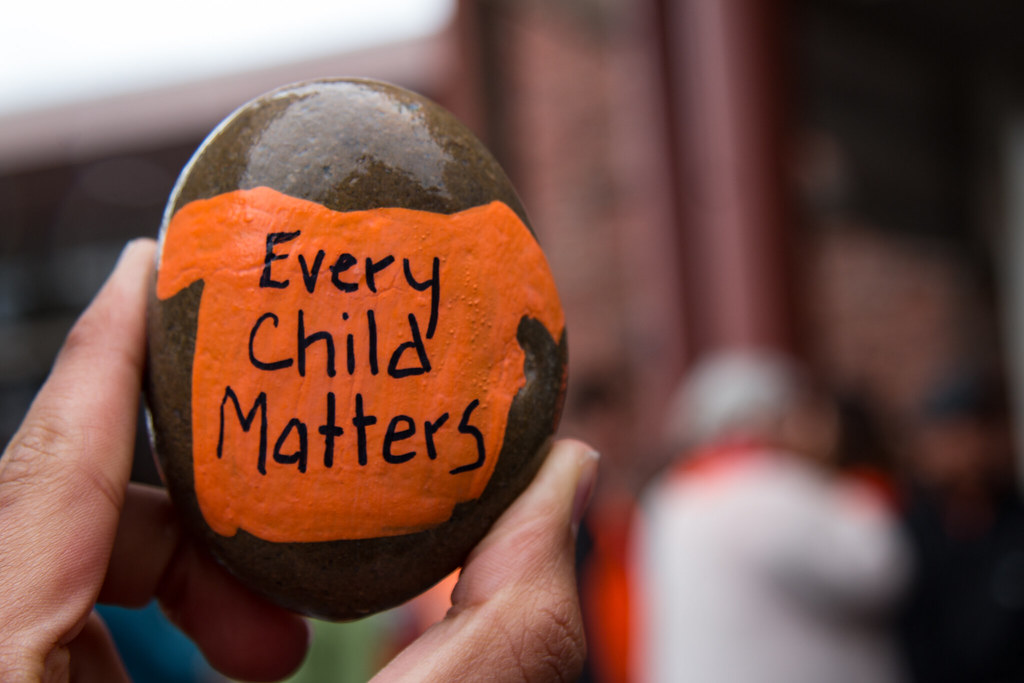September 30th is a bit different this year. Maybe you’ve noticed the orange streamers on the Martingrove fence, or the sea of orange t-shirts in the halls of our school. Today is the National Day for Truth and Reconciliation, the first annual holiday for Canada to recognize the harm caused to Indigenous families and communities over the years. It is also Orange Shirt Day, an annual tradition honouring the survivors of residential schools.
It makes sense that these two events are happening on the same day. The history of the harm caused to the Indigenous people of Canada is linked to the lasting legacy of Residential Schools - one of the main causes of that suffering. In honour of today, let’s outline a brief history of the harm inflicted on Indigenous people in the past, the progress Canada has made today, and the things we need to improve on in the future.
In May of 2021, Canadians and people around the world were horrified by the discovery of the bodies of 215 Indigenous children, found near the Kamloops Residential School, which was the largest residential school during the time of their operation. Since then, 1,000 more bodies have been found at various Residential Schools, forcing Canada into a reckoning over a bloody and cruel history.
People tend to think of Residential Schools as a brutal but distant part of the Canadian story. However, the bodies of the 50 identified children found in Kamloops range from 1900, all the way to 1971. From 1874 to 1996, Residential Schools in Canada operated as part of a policy of forced assimilation, taking First Nations’ children from their families and putting them in state-run boarding schools. This policy stripped these children not only of their families, culture, and language, but also their health and well-being - the schools were overcrowded and underfunded - while many students succumbed to disease and neglect.
The shame felt by the actions of our ancestors will live with us always, but it is nothing compared to the trauma inflicted on the First Nations people. Those who left the Residential School system alive had poorer mental and physical health, and were more likely to suffer from mental distress, including depression, and addictive and suicidal behaviours.
In the face of such overwhelming cruelty, it is easy to feel guilty and stuck in a rut, like there’s nothing you can do to help. However, there are little actions you can take to do your part. The first is one we have started here together: learning the history of Indigenous people. We should take time to reflect on the tragedy of what we know, but should also educate ourselves on Indigenous culture, history, and traditions. We’ll recognize Indigenous people as an important part of Canadian history, and as distinct in their own right.
We can also pay attention to the issues Indigenous people currently face. There are 58 active boiled water advisories on First Nations reserves (38 communities without clean water to drink), and an ongoing crisis of Missing and Murdered Indigenous Women (MMIW), who represent 16% of all murders in Canada between 1980 and 2012, despite being only 4% of the population. This is only the beginning of the issues Indigenous people face. The more we pay attention to these problems, the more media coverage and government intervention will occur. Calling your MP (never underestimate the power that comes from complaining for a good cause), or donating to an Indigenous organization like the Native Women’s Association of Canada is a great way to make a difference.
The last and simplest way to show our support for Indigenous people is to wear orange on September 30th. By doing this, we reckon with Canada’s cruel past, and show we are capable of starting the process of making amends. Our society has taken steps in the right direction - like moving away from honouring creators of Residential Schools by renaming Ryerson and toppling statues of John A. Macdonald - but there is a long way to go. As we reflect today, we should recognize that although much of Canada’s past isn’t something to be proud of, Canada’s future could be, and that depends on all of us doing better than the people who came before us.
